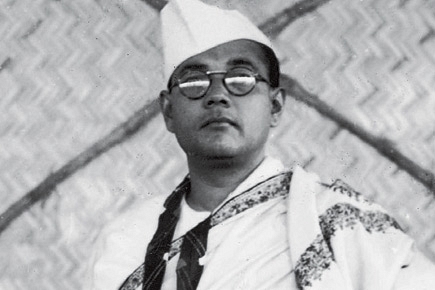Culture
Hindutva And Cultural Nationalism: The Missing Chapter In Netaji’s Life
- For Subhas Chandra Bose, Hinduism was an essential part of Indianness.
- He considered Vedanta and Bhagavad Gita as his sources of inspiration in the fight against the British.

Subhas Chandra Bose
Indian historiographers have deliberately brushed aside a significant chapter on Netaji Subhas Chandra Bose. Today, as the nation commemorates the 120th birth anniversary of the most admired nationalist-revolutionary, it is significant to lay bare the unread chapter on Netaji’s life.
A careful study of the life and times of Netaji clearly suggests that the great patriot championed the cause of Hindutva and cultural nationalism. As a quintessential Hindu, Subhas Chandra Bose considered Vedanta and Srimad Bhagavad Gita as his sources of inspiration in the fight against the British.
A young Subhas was moved by Swami Vivekananda’s teachings on universalism and his fresh interpretation of Indian scriptures. Similarly, the writings of Sri Aurobindo had a lasting impression on his mind. In addition, Bose drew influences from Bankim Chandra Chatterjee’s teachings. All those together helped shape up his social-political activism, loaded with a nationalistic fervour and driven by a religious fascination ever since his young days.
Subhas Chandra Bose believed that the very foundation of India’s Freedom Movement owed its origin to Swami Vivekananda’s message.
On Vivekananda, Bose wrote:
The imprint that Sri Aurobindo had on Subhas Chandra Bose’s mind could be read in this account from his memoirs An Indian Pilgrim written in 1937. Bose wrote:
In his book Taruner Swapna (Dream of a Yong Boy), written in Bengali, Subhas defined his vision for the motherland drawing influences from Bankim Chandra Chattopadhyay’s Anandamath.
Subhas Chandra Bose tactfully used the Hindu symbols and festivals as a strategy against the British to form public opinion. For example while he was locked inside Calcutta’s Mandalay Jail in 1925, Bose organised Durga Puja in the jail premises and demanded that the prison authorities must bear all the expenses. But when the prison authorities turned down his demand, Subhas went on a hunger strike. That helped shaping public opinion and shook the British administration.
In his book, Brothers Against The Raj, noted historian Leonard A Gordon explained how Subhas Chandra Bose’s political activism, coupled with his religious exploration, set him apart from his contemporaries like Jawaharlal Nehru. Gordon wrote:
For Subhas Chandra Bose, Hinduism was an essential part of Indianness.
Famous author Nirad C Chaudhuri wrote on Subhas Chandra Bose in his memoirs Thy Hand! Great Anarch:
In his address as the General Secretary of Congress at Maharashtra Provincial Conference on May, 1928, Bose said:
Subhas-Savarkar Rapport
Netaji Subhas Chandra Bose was thoroughly influenced by Vinayak Damodar Savarkar – the founder-president of Hindu Mahasabha – who is considered as the godfather of modern Hindutva.
On 21 June 1940, a meeting between Subhas Bose and Veer Savarkar reportedly took place at latter’s residence in Dadar to “explore the possibilities of co-operation between Forward Block and Hindu Mahasabbha”. The meeting was said to have changed Netaji’s course of action. It was Savarkar who had advised Subhas “not to waste time organising protests for the removal of British statues like Holwell Monument in Calcutta.” Instead, Savarkar suggested Bose that “he should smuggle himself out of the country, reach out to the axis powers and raise an Indian Army of liberation out of Prisoner of War (PoWs).” Savarkar was said to be in touch with expatriate nationalist leader Rash Behari Bose.
On June 25, 1944, Netaji Subhas Chandra Bose in his speech on Azad Hind Radio showered praises on Savarkar. Netaji said:
In May, 1952, during the dissolution celebration of Abhinav Bharat, this is how Savarkar paid his tribute to Netaji Chandra Bose.
“Long live deathless Subhas. Victory to the Goddess of freedom.”
Support Swarajya's 50 Ground Reports Project & Sponsor A Story
Every general election Swarajya does a 50 ground reports project.
Aimed only at serious readers and those who appreciate the nuances of political undercurrents, the project provides a sense of India's electoral landscape. As you know, these reports are produced after considerable investment of travel, time and effort on the ground.
This time too we've kicked off the project in style and have covered over 30 constituencies already. If you're someone who appreciates such work and have enjoyed our coverage please consider sponsoring a ground report for just Rs 2999 to Rs 19,999 - it goes a long way in helping us produce more quality reportage.
You can also back this project by becoming a subscriber for as little as Rs 999 - so do click on this links and choose a plan that suits you and back us.
Click below to contribute.
Latest